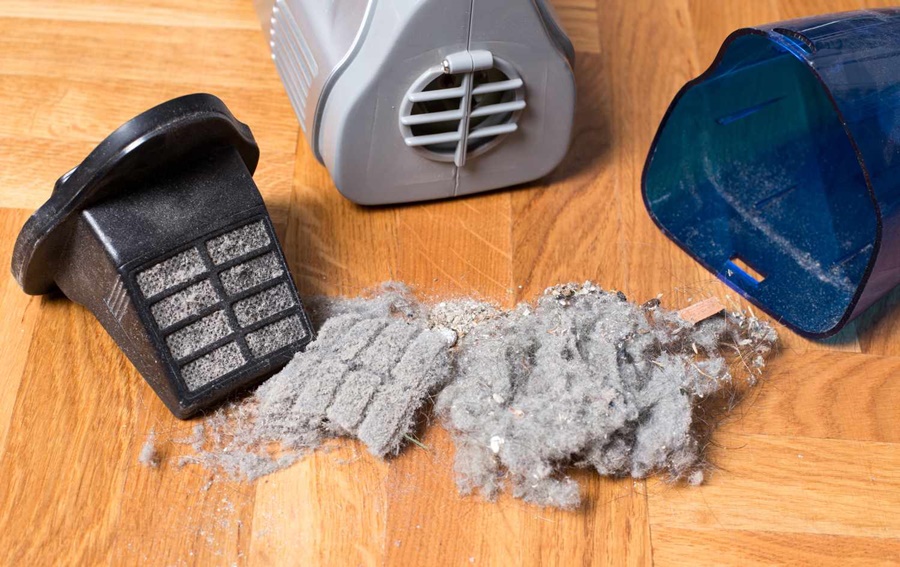Keeping your vacuum filter clean is essential for maintaining suction power, improving air quality, and prolonging the life of your vacuum cleaner. A dirty filter can reduce efficiency, emit unpleasant odors, and even cause motor failure. Here’s an expert-level guide that walks you through how to clean a vacuum filter properly, regardless of your vacuum brand or model.
Understanding the Importance of a Clean Vacuum Filter
A vacuum filter’s main job is to trap dust, debris, allergens, and other microscopic particles. Over time, filters become clogged, reducing airflow and making your vacuum work harder than necessary. Cleaning your filter regularly ensures:
- Optimal suction power
- Improved indoor air quality
- Lower energy consumption
- Longer vacuum lifespan
Types of Vacuum Filters and How They Differ
Before cleaning, it’s critical to identify what type of filter your vacuum uses. Each type has its own cleaning method.
1. HEPA Filters (High-Efficiency Particulate Air)
- Function: Traps 99.97% of particles ≥0.3 microns. Ideal for allergy sufferers.
- Cleaning Method: Most HEPA filters are non-washable. Instead, tap out debris or use compressed air. Replace every 6–12 months unless stated as washable.
- If Washable: Rinse under cold water only — no soap. Air-dry for 24–48 hours.
2. Foam Filters
- Function: Often used as pre-filters; captures larger particles before they reach the main filter.
- Cleaning Method: Washable. Use warm water and mild detergent.
- Drying: Air-dry completely before reinserting. Do not use a dryer or heat source.
3. Cartridge Filters
- Function: Cylindrical in shape; used in upright and shop vacuums.
- Cleaning Method: Tap out dust or use a brush. Some are washable; verify with manufacturer.
- If Washable: Rinse with water only and air-dry.
4. Cloth or Fabric Filters
- Function: Reusable and durable; often used in canister vacuums.
- Cleaning Method: Shake or beat out debris. Wash with mild soap and warm water.
- Drying: Hang dry until no moisture remains.
Step-by-Step Guide: How to Clean a Vacuum Filter Properly
Follow this methodical approach to ensure your vacuum functions like new.
Step 1: Unplug the Vacuum and Disassemble
Safety first — always unplug your vacuum cleaner before performing maintenance. Locate the filter compartment, which is usually behind the dustbin or in the back of the unit. Remove the dustbin and then carefully extract the filter(s).
Step 2: Remove Loose Dirt and Debris
Before washing, tap the filter gently against a hard surface like a trash can to dislodge excess dust. Use a soft-bristled brush or old toothbrush to gently scrub out trapped particles.
Step 3: Wash the Filter (If Applicable)
Only wash the filter if it is labeled “washable” or “rinseable.” Follow the specific process:
- Rinse under cold or lukewarm water.
- Do not use hot water, which can damage filter fibers.
- Use a mild detergent only if the filter is extremely dirty and safe for detergent use.
- Avoid using bleach, harsh chemicals, or pressure washers.
Step 4: Air-Dry the Filter Thoroughly
This is a critical step often rushed by users. A wet or damp filter can cause mold growth inside the vacuum or even short-circuit the motor.
- Place the filter in a well-ventilated area.
- Let it dry for at least 24–48 hours.
- Make sure it is completely dry before reinserting.
Step 5: Reassemble and Test Your Vacuum
Once the filter is dry, return it to its original position. Reassemble the vacuum and plug it in to test for optimal performance.
If suction feels weak or there is a lingering odor, consider replacing the filter altogether.
When and How Often Should You Clean Vacuum Filters?
How often you clean your vacuum filter depends on usage frequency and vacuum type. Below is a general guideline:
| Vacuum Type | Filter Cleaning Frequency |
|---|---|
| Light Use (1–2x/week) | Every 3 months |
| Moderate Use | Monthly |
| Heavy Use (Daily) | Bi-weekly |
| Pet Owners | Weekly |
Also, refer to your vacuum’s user manual for manufacturer recommendations.
Additional Tips for Vacuum Maintenance
- Empty the dustbin regularly to prevent filter clogging.
- Keep a spare filter on hand to rotate during drying periods.
- Label the cleaning date on your filter with a marker to stay on schedule.
- Use genuine replacement filters to ensure compatibility and performance.
Common Mistakes to Avoid When Cleaning Vacuum Filters
- Washing non-washable filters
- Reinserting damp filters
- Using harsh chemicals
- Forgetting to clean secondary filters
- Not cleaning the filter frequently enough
Avoid these pitfalls to maximize your vacuum’s lifespan and cleaning efficiency.
Conclusion
Cleaning your vacuum filter properly is a small maintenance step with a massive impact. By understanding your filter type, using the correct cleaning method, and ensuring it’s fully dry before reusing, you’ll maintain powerful suction, cleaner air, and a longer-lasting vacuum.








Leave a Reply